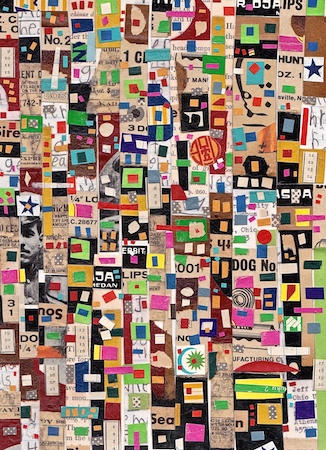 The first one was not the worst one, although it brought the biggest shock: my infant daughter’s irises sought the edges of her eyelids, pried open by faulty synapses. Her arms bent into Ls, and her hands fisted at her face like a fetus. An alien staccato coursed through her limbs. What seized her was a beat that could break her. Don’t try to stop her, we were told later. She could snap a femur. We didn’t try. We knew a brain could make muscles flex stronger than bone could hold.
The first one was not the worst one, although it brought the biggest shock: my infant daughter’s irises sought the edges of her eyelids, pried open by faulty synapses. Her arms bent into Ls, and her hands fisted at her face like a fetus. An alien staccato coursed through her limbs. What seized her was a beat that could break her. Don’t try to stop her, we were told later. She could snap a femur. We didn’t try. We knew a brain could make muscles flex stronger than bone could hold.
It was February, five in the morning, and she stopped seizing before the ambulance arrived, so when I walked into the black cold morning holding my bundled nine-month-old, she was what they call postictal. New traumas gift new glossaries. Words become boxes into which you can pack the pain. Postictal: the period after, when the brain recovers. Ragdoll floppy, yellow-cream skin, seemingly asleep. A brain frazzled from misfires.
Twenty-four hours later, a nurse showed my husband and me a video. The footage was grainy. A woman wore a hospital gown. I felt like a voyeur watching her brain cast off the clothing of normal: She twitched, she spasmed, she cawed. She had no control. We went home with medication to insert up our daughter’s butt.
The worst one should probably be when her lips turned blue. Seven minutes long, two minutes longer than “safe.” My husband stood inches beside me, and still, those blue lips made me holler his name like he stood at the end of a long tunnel. And what I meant by his name was,
This is the precipice. Get us off the fucking precipice. But of course he could only do what I could do, which was inject medicine and wait.
The worst one was not even the longest. It was two minutes. Three years old, she lay beside me, sleeping. My body curled around her like a C. My left arm draped over her middle like a safety belt. I felt the sweat in her hair, the heat off her skin. She was feverish, so I knew she could seize at any moment. And still I slept. I dreamed. I plunged deep into a world without bodies, where nothing is taken—nothing is seized—because no one possesses anything. It was my husband who felt her.
The bedside lamp flicked on. I squinted against the blurred glare. Sleep becomes wake in a flash of Where are we?
She’s having a seizure, he said, and yes, she was. Even as I held her. She was seizing. She was seized, pried from me as I slept. Her eyes were open but unseeing, the haunt of no one home. We got the medicine. We readied her body. We readied to penetrate her so we could seize her back.
I would have slept through it, which fact makes this the worst one. Oblivious, I believed what I do about most things I love: that I can keep them. That even in the second that I can lose them—which is every second—I can grasp them. I think they are mine.
__
Heather Kirn Lanier is the author of the nonfiction book, Teaching in the Terrordome: Two Years in West Baltimore with Teach For America (U of Missouri, 2012), and two award-winning poetry chapbooks, The Story You Tell Yourself and Heart-Shaped Bed in Hiroshima. She blogs about parenting and disability at starinhereye.wordpress.com.

3 comments
Chansi says:
Sep 15, 2015
This is lovely and heart wrenching. Very eloquently rendered.
Alexandria Baisden says:
Jan 3, 2016
Wow, this story really hit home for me. My younger sister has epilepsy, and you really nailed the horror of what seizures are like. Your language is lyrical and stunning. Great piece, very heart wrenching.
Gloria Hammad says:
Jan 4, 2016
I felt like I was there.